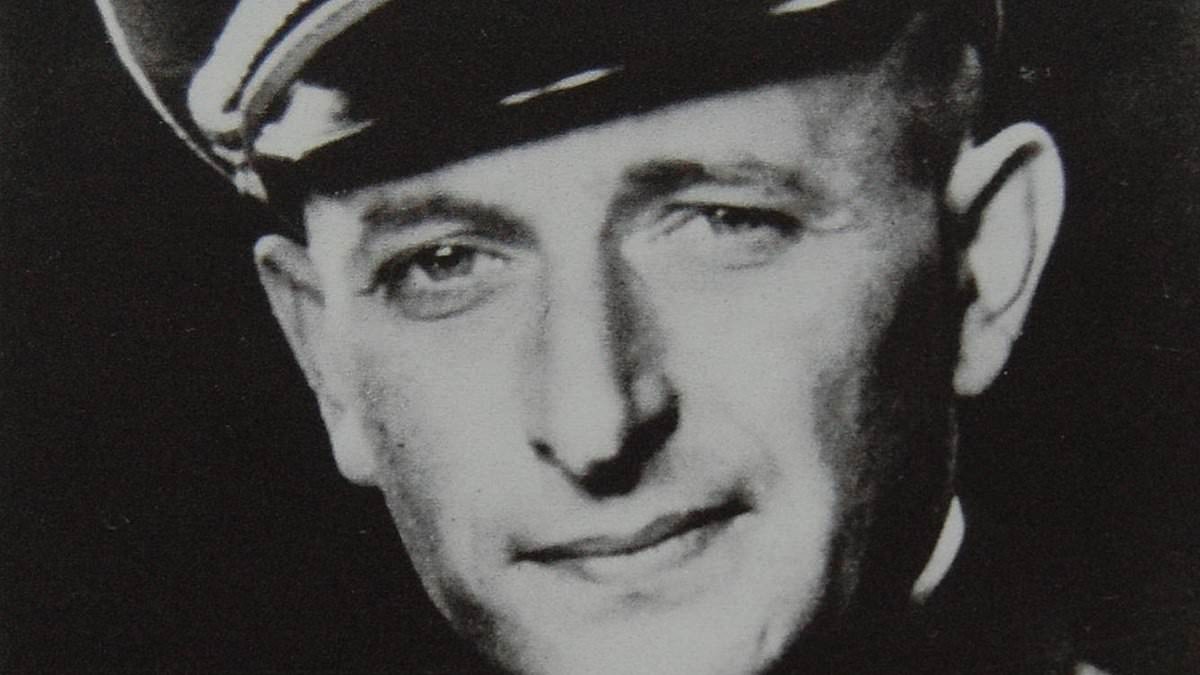There’s a fascinating documentary on BBC2 at the moment: The Devil’s Confession — The Lost Eichmann Tapes.
Eichmann was one of the prime organisers of the Holocaust, in charge of deporting millions of Jews to their deaths. After the war, he managed to escape to Argentina, where he lived under an assumed name.
In 1960, he was tracked down by Mossad, the Israeli intelligence agency, and abducted back to Israel, where he was tried for war crimes a year later. He argued that he had been simply following orders, but he was found guilty and hanged.
During the trial, key evidence against Eichmann was inadmissible: transcripts of an interview with him recorded in Buenos Aires in 1957 by a pro-Nazi journalist. Quite rightly, the judge declared that, as they were only transcripts, their authenticity could not be guaranteed.
The recordings themselves were thought to be lost, but have now been unearthed after being under lock and key for decades. They reveal that Eichmann was not simply an apparatchik acting on orders, but a passionate anti-Semite, eager to kill as many Jews as possible. ‘I didn’t care about the Jews I deported to Auschwitz,’ he says on the tape, ‘I didn’t even care if they were alive or already dead.’
Eichmann was one of the prime organisers of the Holocaust, in charge of deporting millions of Jews to their deaths
In 1960, he was tracked down by Mossad, the Israeli intelligence agency, and abducted back to Israel, where he was tried for war crimes a year later
My late father-in-law, Colin Welch, attended the trial of Eichmann in Jerusalem and kept a diary of the proceedings. It’s not only a masterpiece of observation — for instance, he notices how, under interrogation Eichmann’s voice is ‘gruff, hesitant, as though a man were talking in his sleep at the bottom of a well’ — but also of moral outrage.
Colin couldn’t keep his eyes off Eichmann, sitting there in the dock, just a few yards away. ‘I can neither look at Eichmann nor stop looking at him, he fascinates and repels, like a snake.
‘Not that he looks in any way odd. It would be more bearable if he did. If he had horns, a tail and eyes blazing with diabolical malignancy, we would say, ‘Ah, yes, these crimes were committed not by a fellow human being but by a monster. They are nothing to do with us.’
‘But, alas, he looks quite ordinary. He looks, in Nietzsche’s phrase, human, all too human. He has, or had, a streaming cold. He coughs and sniffs, sneezes and blows his nose… he runs his tongue around his mouth, as though false teeth fitted badly.
‘He is one of us, part of humanity… perhaps that is why we feel for him — yes — an overwhelming pity. I think that almost everyone in the court must feel this pity, though some of us might be ashamed to admit it.
‘It is not a sentimental pity. It is not because we forget or can ever forget, least of all here and now, those terrible washhouses in which showered down not hot and cold but Zyklon B, the reeking smoking chimneys, those ghastly trains stuffed with suffering, starving, suffocating, dying people, the exhausted columns of women and children staggering through the night, the beatings, the cruel whippings, the kicks and blows, the systematic degradation, not only of guards and prisoners but also of all those who looked on without apparent remorse.
‘All this was done to human beings, too, to six million of them or to many more. Heaven forbid that we forget that, or grow indifferent. Yet how can one not feel pity for any man who now faces death utterly alone and friendless, who may soon face a God whose existence he had denied (on the SS documents was entered ‘Non-religious’).
He argued that he had been simply following orders, but he was found guilty and hanged
‘That any one man should go to his death bearing such an intolerable burden of guilt is appalling. We must weep to see God’s image so besmirched.’
Finally, he quoted the words of the prosecutor, the Israeli attorney-general Dr Gideon Hausner: ‘It is a terrible thing to realise that whoever sets his foot upon this path can no longer trace the way back to human values… his heart is destroyed; he is transformed into a chilly block of ice and marble, wrapped in documents, orders, instructions and proclamations.’
Of Eichmann’s one-way journey into evil, Colin wrote: ‘At points along this dark road there seems to have been extinguished in Eichmann all pity, kindness, conscience and natural feeling.’
And he concluded: ‘If so, how little now remains to die — a mere husk, all that remains of what was once a whole man.’
